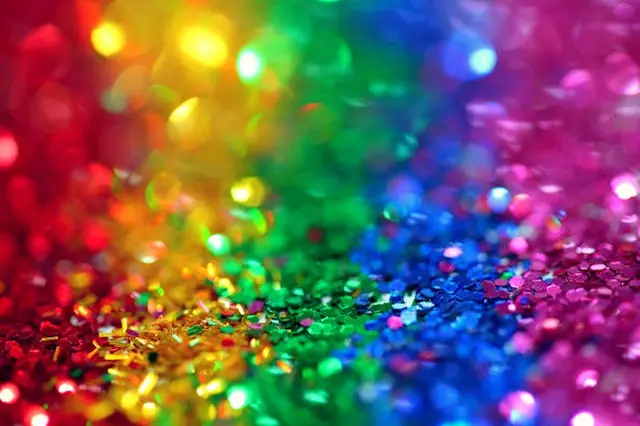
The Color Merchant
The Color Merchant peddled into town moments before the giant clock hanging from the village’s cavern ceiling began to strike: six chimes— long ones, to indicate the second half of the day. He glanced up at the bronze globe-shaped machine that swiveled around its axes with each toll, its metallic creaking echoing throughout the village like a marionette’s broken joint.
The world after the Great Shattering didn’t need to divide the day into two dozen hour shifts any more than they needed the terms “day” and “night.” No longer did people wake up to dawning skies nor go to bed beneath a carpet of stars. But humanity kept the time divisions and the months and the seasons all the same, though most children now displayed a bleak obliviousness to the existence of that last term, much less what it meant: Seasons? What’s that? You’re saying that the metallic green “trees” in my house made of wire and oxygen panes can change color? Oh, you mean the surface trees. Just say that outright then, old man.
The Color Merchant shook his head and stretched a veiny hand out to stroke his donkey’s mane. “Come now, Sidney. Let’s catch them before dinner.”
With a light flick of her tail, Sidney, his faithful load-bearer for the last three years, leaned forward, straining to pull the peddler cart behind her. They increased their pace of descent through the winding road, carved from the tunnel entrance to the village below.
Their arrival had been heralded throughout the village of thirteen thousand as soon as the Color Merchant’s cyan helmet appeared on the ramps. Children, their parents who had once been children, and their parents who had once been children as well, lined the street, watching the merchant’s descent. When Sidney finally plodded through the gate of Main Street, the youngest ones, unable to hold back any longer, wriggled free from their parents’ grasp and swarmed forward. Sticky fingers touched the donkey’s side, tail, nose, and legs, exclaiming at the feel of bristly fur, the pulse and fidget of an animal. The older children, more intimate why not with monotony and monochromy, eyed their elders’ solemn yet relieved demeanors with uncertainty. For many, this was their first time seeing so much color in one place. For others, it was a repeat of a buried and fractured memory, appearing only in the form of small, enigmatic glass jars in one’s sleep.
The village head strode out of the crowd. Her hair, once deep and reflective like a black plum, was now streaked steel gray. Her face was a battered fortress, scars of languor sculpting deep gorges through her skin. Her clothes were as plain as every other villager, black wool shirt and trousers thoroughly suffused with coal dust and the acrid odor of rust. The special, faded, yellow helmet she wore seemed to have a few more craters, but was otherwise a well preserved high-density polyethylene helmet— scavenged from ruins of the Pre-Shattering Era.
“Color Merchant.” She crossed her arms over her chest and bowed deep.
“Village Head.” The merchant bowed back, deeper. “My apologies, I am good with colors and faces, but—”
“Not names, yes. You said those exact words to me eleven years ago. I am Selena.”
In response, the merchant bowed again.
The village feasted that night, as they always do when a visitor comes. The last time— the adults remarked to each other— was four harvests ago. Much less someone as mythical as the Color Merchant himself! Sometimes the adults corrected each other. ‘Years,’ not ‘harvests,’ a faceless, withered voice chided, lost amidst the rush and push to get all the chairs, tables, and food set up. The adults shrugged and continued to discuss what little news of other underground havens they received from global seismic broadcasts.
The Color Merchant bumbled about in the corner of the square, mobbed by adults who wanted to purchase his wares and a horde of wide-eyed children. “See, I took this scarlet from a shard of sky I found at the foot of a big mountain!” He explains the piles in his peddler cart: rows and rows of tiny jars no wider and thicker than his scabbed and wrinkled thumb, each one pulsating with sight-searing colors. The children oohed and scrunched their brows at the word, mountain. How could they imagine a colossus of stone towering into a sea of blue nothingness when stone had always been the sky?
The Color Merchant felt another strand of his hair turning from gray to dull white, and continued with the same eager narration, “I mixed it with some moondust and star oils, and poof! A new color.” He dangled the scarlet jar and grinned. It was a color he was proud to find from a rare shard of sunset. There had only been one Sun before the Great Shattering and it set at only one longitude at a time. To find the reds, oranges, golds, and pinks, the Color Merchant had spent decades learning and braving the kaleidoscopic, twisted reality of the world above, scavenged along the corpses of cities, peddled his cart through cracked roads, all for picking out that one purple-pink shard of sky that had fallen into a farm well or finding a light green shard— the rarest color of all— buried beneath glass. It wasn’t all beauty and adventure, though. Once, when trying to coax a demure-looking blue into its jar, he lost control. The blue sliced through his flesh like sand and exploded into multicolored dust.
The Color Merchant flexed his hand, feeling the emptiness where his left index finger once was, and looked over the town square, where the feast was in full swing. Looks like it was his show now. He shooed away his loyal spectators and scoured around his coat pockets for his magnifying glass. It was a custom gadget. He identified, took out, and arranged some jars: fluttery blue, scalding gold, humid orange, mellow crimson. It just took a slight adjusting of angle and all of a sudden, the village was bathed in sunset.
Magnified by the glass, the spirited colors trapped in their jars unleashed their majesty on the cavern. Suddenly the stone was no longer stone but pure color and nothingness. The children’s rabble hushed. The adults stared too, flickering between listless, desperate, and hopeful. Unable to turn away from the sunset— the sunset, as described in the storybooks and inadequately captured through faded and fuzzy photographs— the village fell into a trance, each person as drunk on the beauty as they felt newly alive.
The Color Merchant chuckled and began reorganizing his cart. His shriveled limbs shook and wobbled beneath the weight of the colors, and he hummed a tune with a forgotten name enigmatically to himself.


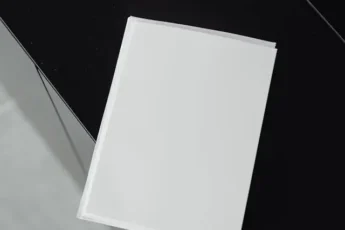
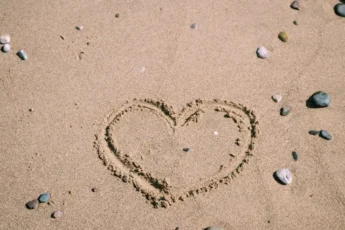
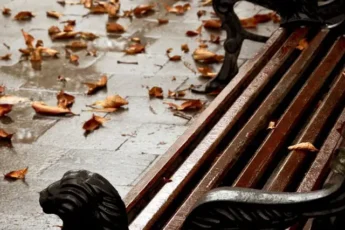
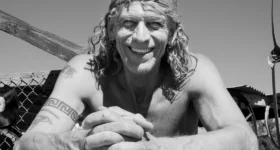
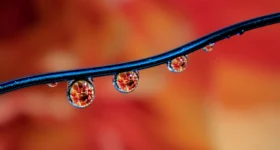
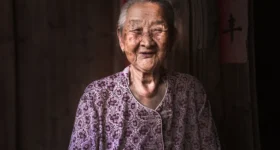
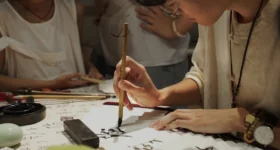
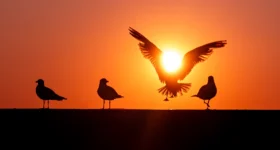
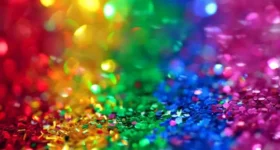
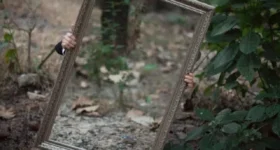

Leave a Comment